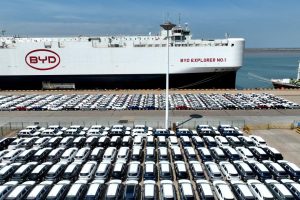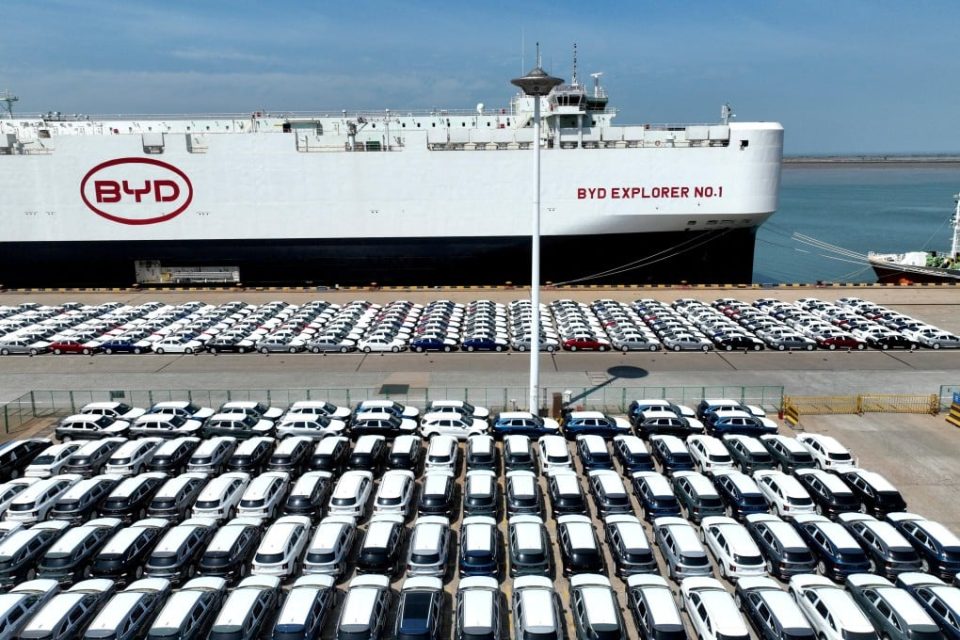The Evolving Customer Experience of Chinese EVs in Brazil
Brazil’s once-promising electric vehicle (EV) market is now experiencing significant challenges, especially for Chinese car manufacturers. Recently, Brazilian ports have been clogged with over 70,000 unsold Chinese EVs. This situation highlights the struggle of China’s carmakers to maintain robust growth in the global market. In particular, the looming tariffs and infrastructure limitations are contributing to a cooling of Brazil’s EV sector. Consequently, both Chinese manufacturers and local competitors are facing increasingly complex circumstances that could affect future customer experience (CX).
Initially, Brazil embraced the shift toward electric mobility by exempting EVs and hybrids from a 35% import tax. This policy aimed to encourage the adoption of environmentally friendly vehicles and attract foreign manufacturers. Consequently, China’s carmakers, such as BYD and Great Wall Motor, saw Brazil as a key market. For them, success in Brazil was not only important for growth but also essential for their expansion into other parts of Latin America. However, things have not gone as planned, with Chinese EVs now facing a series of obstacles.
One of the primary challenges Chinese EVs manufacturers are grappling with is the sheer volume of unsold vehicles at the ports. In an effort to avoid rising tariffs, many manufacturers overestimated the demand for EVs in Brazil. As a result, they significantly ramped up production. However, the expected demand did not materialize as anticipated. Therefore, these unsold cars are now piling up in the Brazilian ports, signaling a mismatch between supply and demand.
Difficulties for Chinese EVs Makers
Additionally, the global situation has created further difficulties for Chinese EV makers. Just as they are trying to find footing in Brazil, they are also facing significant challenges in Europe. In October 2023, the European Union imposed steep tariffs on imported Chinese EVs. This, in turn, has made it harder for Chinese carmakers to achieve the same level of success in Europe as they have in Brazil. Given this situation, Brazil was viewed as a crucial proving ground. However, even this market is becoming increasingly challenging.
Meanwhile, domestic competitors in Brazil have stepped up their game. Traditional car manufacturers such as General Motors and Volkswagen are responding by offering more electric and hybrid models. These companies are making large investments in EV technology. For instance, Volkswagen, Renault, and Toyota Motor have collectively pledged to invest over 100 billion reais by the end of the decade. Most of this money will be directed toward developing hybrid solutions, combining electricity with petrol and ethanol, a fuel produced locally from Brazil’s abundant sugarcane crops. As a result, these investments could drastically change the customer experience for Brazilian consumers. They are likely to have more choices, better infrastructure, and localized solutions that meet their specific needs.
Despite these efforts, the situation remains complicated. The Brazilian government, under President Luiz Inácio Lula da Silva, has started reinstating import taxes. While initially exempted to stimulate the EV market, these taxes are being gradually increased. Over time, the import tax will rise from 10% to 35% by 2026. The reintroduction of these taxes has been largely influenced by the lobbying efforts of local manufacturers who want to level the playing field. Naturally, this shift in policy will directly impact the cost of Chinese EVs and potentially reduce their competitiveness.
Reluctance to Embrace Electric Cars
Moreover, finding new customers willing to purchase an EV is becoming increasingly difficult in Brazil. In a country that is still in the early stages of developing EV infrastructure, there is a reluctance to embrace electric cars. Brazil’s vast size, coupled with its underdeveloped charging network, makes it challenging for consumers to adopt EVs. The lack of charging stations, coupled with concerns about the limited range of electric cars, has created a significant barrier for many potential customers. For consumers, the perceived inconvenience of using an EV—due to worries about long-distance travel—has resulted in hesitation.
However, Chinese manufacturers are not backing down. BYD, one of the leading Chinese EV makers, has managed to expand its market share significantly in Brazil. In fact, Brazil is BYD’s largest overseas market by a wide margin. With its lowest-cost model priced at just 115,800 reais (US$19,100), BYD has made EVs affordable for many Brazilian consumers. As a result, it quickly gained traction in the market, often offering better value compared to the petrol-powered vehicles from traditional automakers. This shift in pricing has caused domestic manufacturers to respond, reducing prices on some models by as much as 30%. While this has created a more competitive market, it has also intensified the pressure on both Chinese and local manufacturers to continually innovate and offer value to their customers
EV Market in Brazil is Slowing Down
Despite these pricing strategies, the overall growth of the electric vehicle market in Brazil is slowing down. This cooling trend is not unique to Brazil; it is happening globally. EV adoption rates, which soared during the early years of the electric vehicle revolution, have now begun to plateau. There are many reasons for this slowdown. For one, the higher prices of EVs and the lack of sufficient charging infrastructure are major barriers to widespread adoption. Additionally, consumers in emerging markets like Brazil are still more accustomed to petrol-powered cars. The upfront costs of EVs, despite lower operating costs over time, remain a concern for many potential buyers.
Competition in Brazil Heats Up
As the competition in Brazil heats up, customer experience is becoming an increasingly important factor in influencing buying decisions. The presence of local alternatives, including hybrids and flex-fuel vehicles, has raised the bar for Chinese manufacturers. Customers are no longer just looking for affordable EVs; they want reliable, accessible, and sustainable options. Furthermore, the lack of charging infrastructure in Brazil means that customers expect manufacturers to offer solutions that make it easier for them to use their electric vehicles. Local manufacturers, by investing heavily in hybrid and flex-fuel technologies, are addressing these concerns, thereby providing a better overall customer experience.
It is also crucial to understand that the customer experience in Brazil’s EV sector goes beyond the vehicle itself. Factors such as after-sales service, customer support, and availability of spare parts are equally important. Chinese manufacturers like BYD have recognized the importance of these services and are working to build a stronger network to support their customers. For instance, BYD has been increasing its presence in Brazil, setting up service centers and providing better after-sales support. This focus on customer service can play a pivotal role in maintaining brand loyalty and ensuring a positive experience for consumers.

Chinese EVs: A Fascinating Case Study
In conclusion, the situation facing Chinese electric vehicle makers in Brazil presents a fascinating case study in the complexities of customer experience. While the market initially seemed ripe for growth, several challenges have emerged. The rising tariffs, competition from local manufacturers, limited charging infrastructure, and cooling demand have all contributed to a slowing growth rate for EVs in Brazil. Nonetheless, Chinese manufacturers like BYD continue to innovate, offering affordable vehicles with the hope that they can win over customers through competitive pricing and improved service. Ultimately, success in Brazil’s EV market will depend not only on offering an attractive product but also on addressing the unique challenges that Brazilian consumers face.

